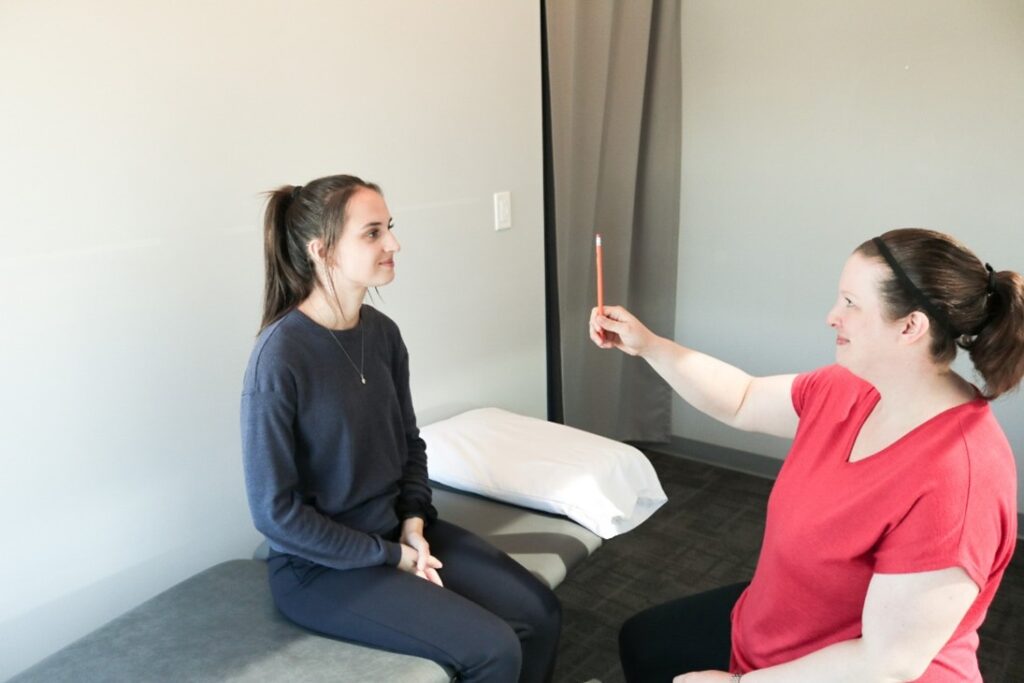Concussion Symptoms: How to Recognize a Concussion
By: Laurin Walton, Physiotherapist
Why Early Recognition and Treatment of Concussion is Important
Being able to recognize concussion symptoms can result in determining when a concussion may have occurred. This information is important for getting a person the care they need. Whether this person is your teammate, your child, or yourself, these tools can help. Only a qualified medical professional can diagnose a concussion, but anyone can learn how to identify concussion symptoms. Early recognition of symptoms and prompt treatment of concussions can help improve a person’s recovery. I believe that knowledge is power, and I want to give you the tools to identify a concussion!
Guidance From the Experts
Every 4 years (except during the COVID-19 pandemic), an international group of concussion experts get together to create a consensus statement that reflects the most up-to-date research on concussion. They have also created the Concussion Recognition Tool 5 (CRT5), which helps non-medical professionals identify when a concussion may have occurred.

The CRT5 will help you identify red flags that would indicate emergent medical attention. It will also provide guidance to recognize a possible concussion, concussion symptoms, and information on what you need to do next. Check out the Concussion Recognition Tool 5 (CRT5) above.
Click here for your own copy of the Concussion Recognition Tool 5, which was developed by the Concussion in Sport Group. Keep a copy of it handy on your phone or print a copy for your sports bag.
Takeaways From the Concussion Recognition Tool 5 (CRT5)
- Check for red flags and get emergent medical help if red flags are present.
- Use the guidelines to identify a possible concussion and concussion symptoms.
- If you suspect a concussion, stop all activity. You or your person cannot continue until examined by a qualified medical professional.
- Follow the guidance for care provided on the CRT5 if you suspect a concussion.
- Book an appointment with a physiotherapist or another qualified medical professional.
If no red flags are identified by using the CRT5, it is still beneficial to get a concussion assessment. Because I have taken many courses to further my concussion training, you can book an assessment with me. You can also see one of our other qualified physiotherapists. Start by clicking here.
What Does a Concussion Assessment with a Physiotherapist Look Like?
-
- We will ask you questions about your injury and assess how you are currently feeling. Then we will look at any of your history that may be relevant to your current condition.
- We complete a physical assessment that includes a neurological screen. There are other areas that may be affected. (Neck, eyes, inner ear, balance, etc.)
- We determine a specific treatment based on the findings of the assessment.
- We will provide personalized education and a plan to help you know what you can do for your recovery, which will help get you back to your activities safely.
If you are in a situation where you think someone has sustained a concussion, the CRT5 will guide you through what to look for and what to do. I hope it helps you feel more prepared to deal with these stressful situations. When in doubt, book a physiotherapy appointment with me at Stride by clicking here and I can help solve your concussion questions and problems!
**Disclaimer: The above information is not a replacement for the advice of a qualified medical professional for your specific case. This blog is not for the purpose of diagnosing a concussion.**





